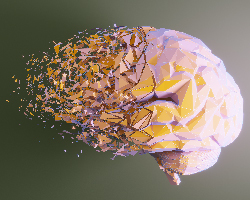
Oct. 5, 2021— Methamphetamine, also known as "meth," is a highly addictive drug that can have a huge impact on the lives of people who use it and those who love them. Here are five important facts to know about meth:
1. Meth has significant health effects. Like other stimulants, some of the short-term health effects of meth may include:
- Loss of appetite.
- Faster breathing.
- Higher blood pressure.
- Higher body temperature.
- Increased wakefulness and physical activity.
- Irregular or rapid heartbeat.
Long-term health effects are more severe and may include:
- Addiction.
- Anxiety.
- Changes in brain function and structure.
- Confusion or memory loss.
- Dental/oral issues.
- Hallucinations.
- Intense itching.
- Paranoia.
- Severe weight loss.
- Sleep problems.
- Violent behaviors.
Also, meth users are at higher risk of spreading or getting infectious diseases, such as HIV and hepatitis.
2. Smoking or injecting meth is particularly harmful. These are popular methods of using meth because they get the drug into the bloodstream quickly. That leads to a quick and intense high. But it can also make the drug more addictive and increase the harmful side effects. Because the high fades quickly too, it can lead people to binge for days at a time to keep it going.
3. Meth overdose deaths nearly tripled between 2015 and 2019. Researchers at the National Institutes of Health found that non-cocaine overdose deaths, which primarily involved meth, rose from just over 5,500 in 2015 to nearly 15,500 in 2019. They also noted an increase in high-risk behaviors, such as:
- Meth use disorder (continued use despite harmful consequences).
- Injecting meth.
- Using meth at the same time as other drugs, like cocaine.
While the number of meth users during this time didn't rise as rapidly, these risky behaviors could be enough to account for the rise in overdose deaths, researchers said.
4. There is no "cure-all" for meth use disorder. There are no current medications that treat the effects of meth use specifically, although research continues. But behavioral therapy can often be helpful. It can help people learn strategies to cope with cravings or provide incentives for not using.
5. There are ways friends and family can help. If you are concerned about a loved one's substance use, there are resources you can turn to. You can call 1.800.662.HELP (1.800.662.4357) or visit FindTreatment.gov to learn about treatment options. Or you can visit websites such as drugabuse.gov and teens.drugabuse.gov to learn more about substance use disorders and how to help.